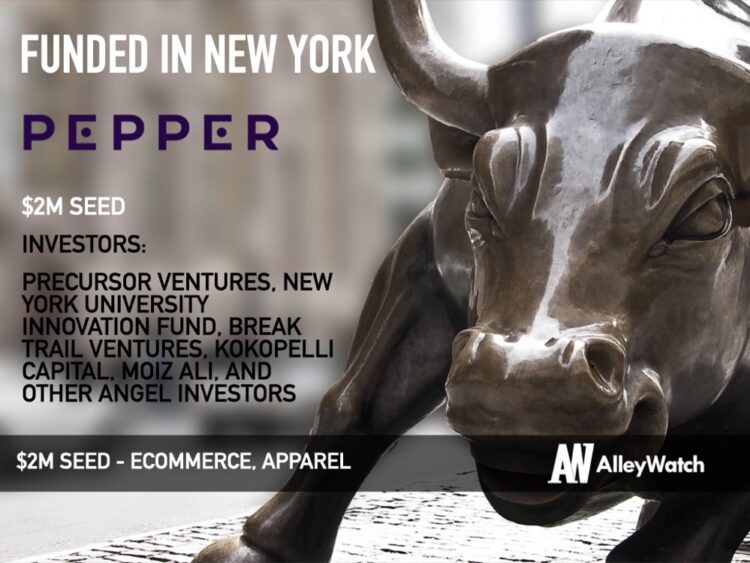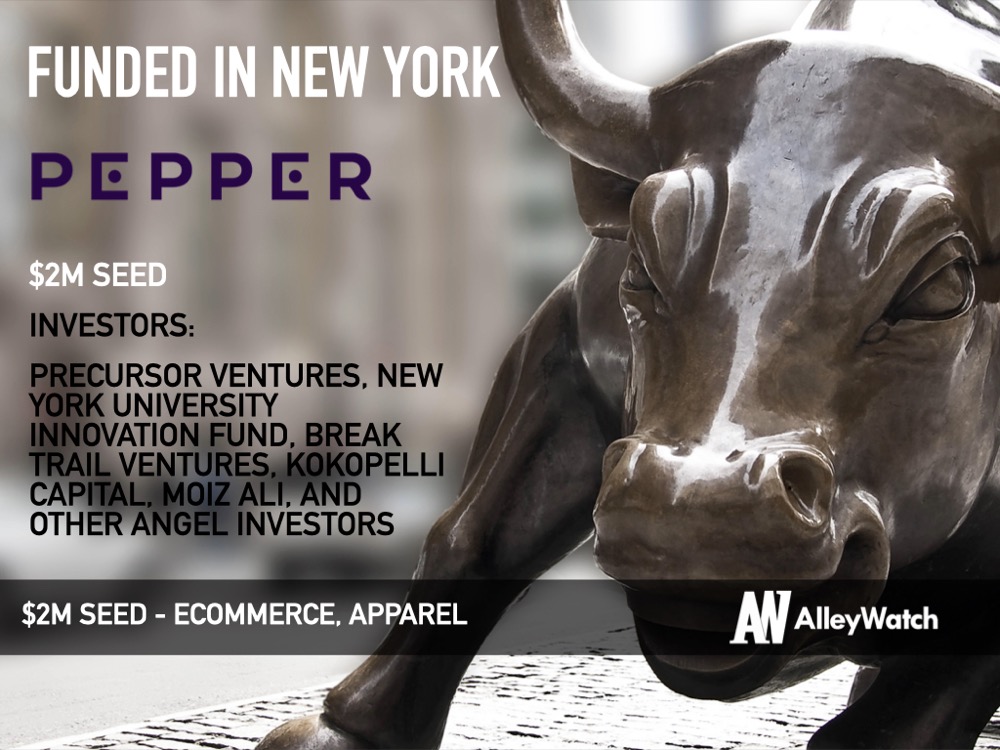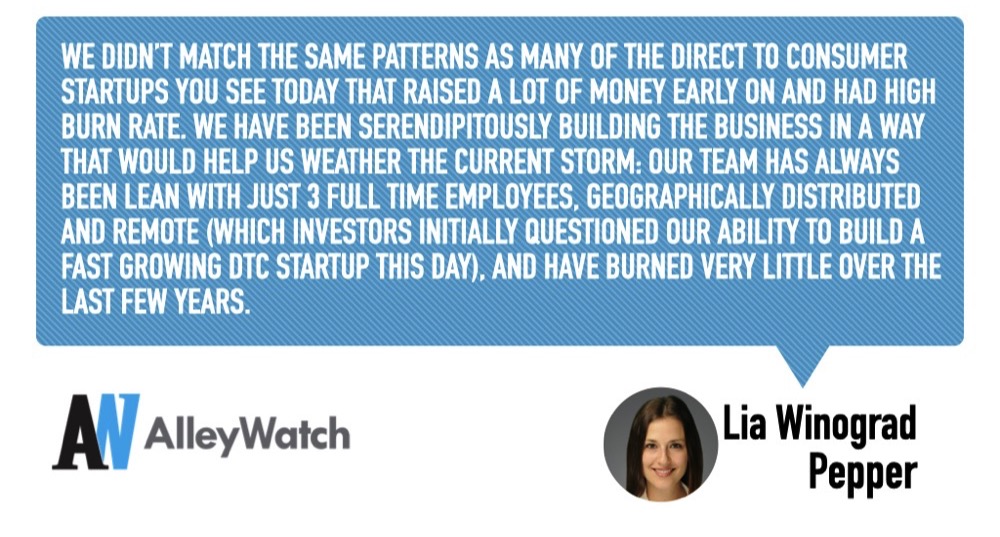Women with smaller chest sizes are often overlooked by mass-market brands that attempt to apply the industry average of 36C across every single bra size. Pepper is the direct-to-consumer bra brand that focuses on creating bras that are designed specifically for women that are size AA, A, and B. Pepper currently offers three types of bras, and its first, original bra, “All You Bra”, costs $49. Launched in 2016, Pepper grew 800% in 2019.
AlleyWatch sat down with COO and cofounder Lia Winograd to learn more about how Pepper celebrates women with smaller chests, the company’s future plans, and recent seed funding, which brings the company’s total funding to $2.5M.
AlleyWatch: Who were your investors and how much did you raise?
Lia Winograd, Pepper: $2M Seed. Investors include Precursor Ventures, New York University Innovation Fund, Break Trail Ventures, Kokopelli Capital, Moiz Ali (founder of Native Deodorant) and other individual angel investors.
Tell us about the product or service that Pepper offers.
Pepper is a direct to consumer bra company for women who wear small cup sizes.
 What inspired the start of Pepper?
What inspired the start of Pepper?
It was first inspired by my cofounder Jaclyn Fu’s personal experience of bra shopping and not being able to find anything that fit her. Women in this size range have to compromise with fit issues like cup gaps, or heavily padded push-up bras.
How is Pepper different?
Pepper’s mission is to rally women to embrace the ‘flat’ in flattering and celebrate their bodies exactly as they are. Our bras are designed specially with the small-chested woman in mind. Most bra companies design for the industry average, which is a 36C, and then try to apply that same design across every size not taking into consideration how to optimize for each size. We’re building a community of women who are done with traditional and misinformed body standards.
What market does Pepper target and how big is it?
Women who wear AA, A, and B cup sizes. We estimate this to be a $5B underserved market in the U.S.
What’s your business model?
Direct to consumer online sales.
Who do you consider to be your primary competitors?
Our customers mention majority of them convert from wearing Victoria’s Secret.
What was the funding process like?
Challenging as first-time female founders. However, since my cofounder and I are in different cities, we were able to tap into each network and community and reach more potential investors who were aligned with our mission.
What are the biggest challenges that you faced while raising capital?
We didn’t match the same patterns as many of the direct to consumer startups you see today that raised a lot of money early on and had high burn rates. We have been serendipitously building the business in a way that would help us weather the current storm: our team has always been lean with just 3 full-time employees, geographically distributed and remote (which investors initially questioned our ability to build a fast-growing DTC startup this day), and have burned very little over the last few years.
What factors about your business led your investors to write the check? Because we weren’t following the same patterns as other startups, our metrics were very strong, and we had a clear vision on the meaningful change we wanted to create in the world.
What are the milestones you plan to achieve in the next six months?
This has changed with the current landscape! Our top priority right now is to develop new products to launch. Now that our customers have found their perfect fit, they’re looking for new styles from us.
What advice can you offer companies in New York that do not have a fresh injection of capital in the bank?
We bootstrapped for 2 years (including not taking a salary/very low salary) before we raised capital. My advice is to prioritize customer discovery early on because the sooner you can find product/market fit the more likely you can reach profitability.
We bootstrapped for 2 years (including not taking a salary/very low salary) before we raised capital. My advice is to prioritize customer discovery early on because the sooner you can find product/market fit the more likely you can reach profitability.
Where do you see the company going now over the near term?
Continuing to grow our community and own the bra category.
What’s your favorite restaurant in the city?
Samurai Mama.
You are seconds away from signing up for the hottest list in New York Tech! Join the millions and keep up with the stories shaping entrepreneurship. Sign up today






